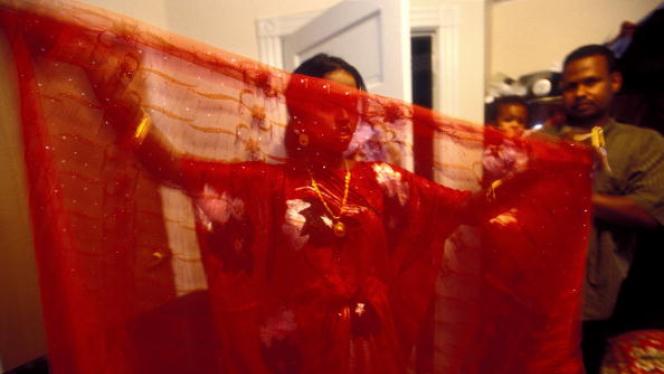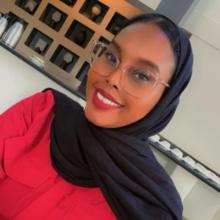Sunday 8 September 2024
Violence against women in the Somali context

More needs to be done to end violence and discrimination against women across Somali contexts, and empowering us is crucial to creating a more just society
The issues surrounding women’s rights, protection, advocacy, and gender inequality in the Somali context are sensitive and taboo. As a result, the majority of women are unable to speak out or address the consequences of gender-based violence (GBV). Consequently, these issues do not receive the attention and vigilance they deserve, despite the enormous challenges, grief, and harsh realities that many Somali women and girls face. Somali women are silently suffering, and their voices and concerns are never heard due to deeply rooted gender inequality and the stigma associated with publicly discussing their pain, even if it profoundly affects their lives. Addressing these challenges is, itself, an enormous challenge, let alone remedying many of these problems.
What are the issues surrounding women’s rights in Somaliland?
Let’s take this journey together. When a Somali girl is born, she completes her father’s status in Islam and elevates him to the highest position. In Islam, if a father raises three daughters rightfully and fulfils all requirements, our beloved Prophet Muhammad (SAW) promises him a place in Jannah. So why are young girls still denied their rights in Somali culture and society? This is because, in Somali culture, when a boy is born, the father is the happiest person. He has a man in the house, and his name is valued for having a son who will carry his name in the family. This is given added significance because Somalia is, for the most part, a patrilineal clan-based society, and therefore a son also carries his clan’s name. A son is a constituent element in the political system which is organised around clans in a way that a woman is not. Thus, a son holds higher status compared to a daughter. A woman has no control over whom she will give birth to, but she is automatically blamed for carrying a girl.
Life circle
Just as a seed blossom into a flower, Somali girls are taught domestic work from a very young age. The young girl is responsible for learning household chores and caring for her siblings. This is a norm and very common within Somali communities. Young boys are not held accountable for house chores. There are several differences in nomadic Somali contexts where many of the chores required for the survival of the community are distributed among its members but overall, the role of a woman, from a very young age, is associated with household duties.
The problem of FGM
Imagine yourself at ten years old, pinned down by more than five strong women, and subjected to the horrific act of female genital mutilation (FGM). There is no anaesthesia or numbing injection—just the stark reality of a part of your body being removed while you are held down by women ten times older than you. Somali parents are trapped in the taboo of FGM, believing it will prevent their daughters from engaging in early sex during adolescence. To ensure young girls do not engage in early sex, FGM is performed as a supposed solution. A newly released Unicef report has found that 230 million girls and women alive today have undergone female genital mutilation (FGM), which Unicef believes represents a 15% increase. The report also found that attitudes to the practice among women are changing, with two-thirds of people in countries where it is done opposing FGM today. This must be taken advantage of to eradicate FGM.
It is a historical grievance and a struggle for survival that starts when a girl is born. Between the ages of 5 and 10, almost every Somali girl undergoes FGM. This harmful cultural practice has nothing to do with religion, but the majority of people mistakenly believe it is a religious obligation.
The issues surrounding women’s rights, protection, advocacy, and gender inequality in the Somali context are sensitive and taboo. Consequently, the majority of women are unable to speak out or address the consequences of gender-based violence (GBV). As a result, these issues do not receive the attention and vigilance they deserve, despite the enormous challenges, grief, and harsh realities that many Somali women and girls face.
Education is Key
‘Education is the key to life’—what an irony in this statement, as girl-child education was not valued in Somali society. In rural areas, young girls have the highest percentage of illiteracy. After considerable community awareness and advocacy efforts, parents are now beginning to recognise the benefits of educating girls, though rural areas still lag behind. Traditionally, Somali communities believed in educating boys, who were expected to be successful and support their families in return; therefore, investing in boys was seen as more productive. Tied back to the clan superstructure, a boy’s wealth is viewed as the clan’s wealth too.
Future fading
Rape incidents have risen in Somaliland recently. The act of rape is seen as a curse or taboo, and the victim is silenced by the guilty. The victim and her family are often bought out of court and given money as compensation for the perpetrator’s actions. Due to the fear of shame and the potential tarnishing of their status in the community, the girl’s family often accepts the money and remains silent about the act of rape. The girl’s future is sacrificed to save the reputation of the perpetrator and his image in society. While one future is destroyed in the process, another—the future of the boy—is protected by the community.
In some cases, the victim of rape is blamed for the act. It is shocking how this reverse cycle is accepted in Somali communities to preserve the dignity and status of men. This doesn’t allow accountability and therefore doesn’t put in place deterrents against such behaviour. Worst still there is no attempt to more proactively change this through education because the problem isn’t properly acknowledged.
Early girl-child marriage
In ancient times, Somali culture believed a girl should be married by the age of 12. Young girls between 12 and 15 years old were often given away in marriage. Somali culture strongly endorses marrying off girls at a very young age. Imagine being given to an older man, who is almost or even twice your father’s age, at the tender age of 12 to 15 years. How can you wrap your head around that situation? I can’t imagine what our mothers went through in their early marriages. It’s a terrifying prospect for a young girl of such a tender age.
The maternal mortality rate is high in Somaliland and Somalia, with estimates indicating that the crude death rate increased across Somalia from 0.33 to 0.38 deaths per 10,000 person-days over the period January to December 2022. A young girl’s life is often cut short in the delivery room because sometimes they cannot deliver their babies. What if this young child were given a proper early childhood with the privilege of education? Perhaps her future could still be bright.
Many married women still suffer domestic violence at the hands of their spouses. If being married young and becoming a mother at a young age weren’t enough hardship, imagine enduring domestic violence, including physical, mental, and emotional abuse, at the hands of a loved one.
When it comes to divorce rights, women must be represented by male figures to acquire justice. The fate of dissolving a marriage depends entirely on the male family members.
Political rights
In Somalia and Somaliland, women are prohibited from holding the highest office of state, such as President or prime minister. However, what about other positions like MP, minister, governor, chief, judge, and so on? In 2021, Somaliland conducted parliamentary and council elections, and no woman was elected to either body. This starkly highlights the lack of representation in decision-making roles. Across Somalia too there hasn’t been a female president of any federal state. Fawzia Yusuf Adam, a former foreign minister, is probably the woman to hold the highest office in the country’s history. That was once and we haven’t come close since.
Women are systematically excluded from political and decision-making roles. In Somaliland’s parliament and House of Elders, which are pivotal decision-making bodies, women are absent. Consequently, women’s voices go unheard, and issues pertaining to women remain unresolved by male-dominated bodies. Even in peace negotiations, women are largely absent.
Somali women are victimised by their community, the governmental system, their parents, and predominantly male cultural and religious leaders. They exist within a society and system that is heavily male-dominated, viewing them as irresponsible and treating them as second-class citizens—less significant and less human. Their concerns and interests are seldom deliberated upon in decision-making forums and institutions. At times, being a woman in this region appears to be a disadvantage or a weakness.
--






